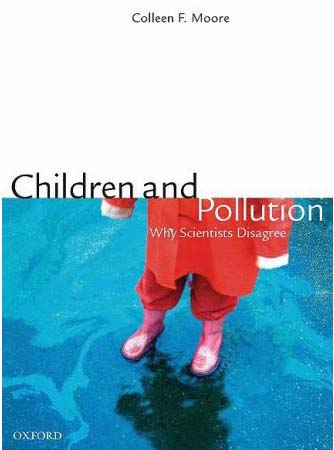|
Children & Pollution The book "Children and Pollution: Why Scientists Disagree" (2009, Oxford University Press) is the only book that reviews the scientific evidence about how pollution affects child development. This book is a battle manual for the green movement. After reading this book you will know how to see when a researcher's values and biases are seriously influencing conclusions. The author also explains how to protect your family and our planet from common pollutants, an how to argue for more effective environmental policies. Click here or scroll down for more info, including links to websites on children and pollution! |
|||
|
(available from Amazon and Barnes & Noble,
or your local bookseller, and as an e-book)
(click here for the independent bookseller's website) Reviews
read a review of this book in Pomona College Magazine
read Erik Ness's review in The Grist (the most entertaining review) review in International Journal of Epidemiology
review in San Francisco Medical Journal read review in BMJ (British Medical Journal) review in Journal of Nutritional and Environmental Medicine |
|||
|
(University of Wisconsin business email address : cfmoore@wisc.edu) (now Affiliate Professor at Montana State University, Psychology Department) The book reveals the scientific evidence about impact of common pollutants on children's psychological development How does pollution impact our daily quality of life? What are the effects of pollution on children's development? Why do industry and environmental experts disagree about what levels of pollutants are safe? In this clearly written book, Moore traces the debates around five key pollutants---lead, mercury, noise, pesticides, and dioxins and PCBs---and provides an overview of the history of each pollutant, basic research findings, and the scientific and regulatory controversies surrounding it. Moore focuses, in particular, on the impact of these pollutants on children's psychological development --- their intellectual functioning, behavior, and emotional states. Only by understanding the impact of pollution can we prevent future negative effects on quality of life and even pollution disasters from occurring. This volume will be of great interest to parents, child health care experts, public health officials, regulators, and health and environmental advocates. Offers insight into how industry and environmentalists have come up with sharply different claims about what level of pollution is safe. |
|||
|
|
